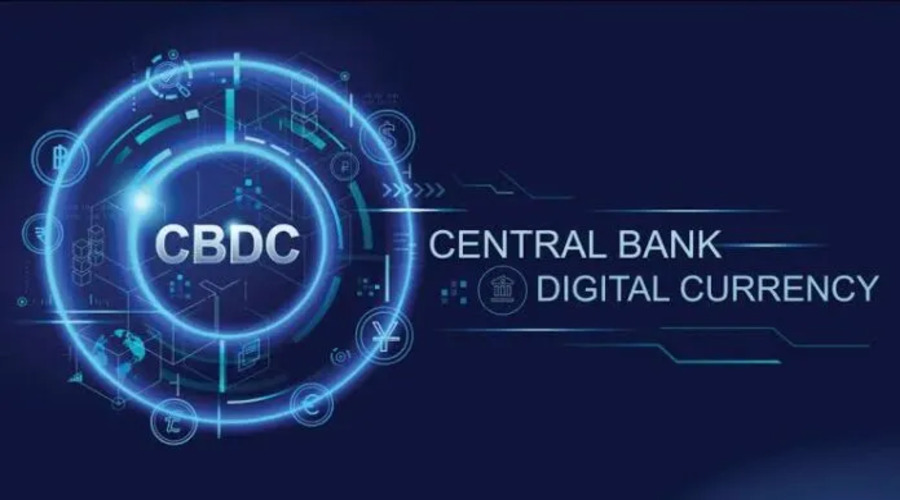Cryptocurrencies and blockchain technology have revolutionized the financial landscape, introducing new possibilities for decentralized finance (DeFi). At the core of DeFi lending lies a powerful tool called a smart contract. In this article, we will delve into the concept of smart contracts, how they function, and their crucial role in facilitating DeFi lending.
Introduction
In the world of finance, contracts are the backbone of any transaction or agreement. Traditionally, contracts require intermediaries and a level of trust between parties. However, with the advent of blockchain technology, smart contracts offer an innovative solution to automate and execute agreements without the need for intermediaries.
Definition of Smart Contracts
A smart contract is a self-executing contract with the terms of the agreement written directly into code. It is stored on a blockchain network, ensuring transparency, security, and immutability. Smart contracts automatically enforce the rules and conditions defined within them, providing a decentralized and tamper-proof system.
In the realm of blockchain technology, smart contracts have emerged as a groundbreaking solution for executing agreements in a transparent and automated manner. A smart contract is a self-executing contract with terms and conditions written directly into its code. It resides on a blockchain network, ensuring security, transparency, and immutability.
Smart contracts function based on predetermined conditions and execute actions accordingly. These conditions are typically triggered by specific events or actions, such as the transfer of funds or the passage of time. By leveraging if-then statements, smart contracts enable the automatic enforcement of rules and conditions.
Smart contracts offer numerous advantages, including reduced reliance on intermediaries, improved efficiency, and enhanced transparency. They have revolutionized various sectors, particularly decentralized finance (DeFi), by enabling secure lending, decentralized exchanges, and token issuance.
As blockchain technology continues to evolve, smart contracts are set to play an increasingly significant role in streamlining and automating agreements across industries, paving the way for a decentralized future.
How Smart Contracts Work
Smart contracts are built on blockchain platforms like Ethereum, using programming languages such as Solidity. Once deployed, they reside on the blockchain and execute automatically when predetermined conditions are met. These conditions are typically triggered by specific events or actions, such as the transfer of funds or the passage of time.
Smart contracts utilize if-then statements to execute actions. For example, if a borrower repays the loan on time, the smart contract will release the collateral held in escrow back to the borrower. If the borrower defaults, the smart contract may initiate the liquidation process to recover the lender’s funds.
Smart contracts, a cornerstone of blockchain technology, revolutionize the way agreements are executed and enforced. Understanding how smart contracts work is essential for grasping their transformative potential.
At their core, smart contracts are self-executing agreements with predefined terms and conditions. These contracts are written in code and reside on a blockchain network, ensuring transparency and security.
Smart contracts operate on the principle of if-then statements. When certain conditions specified in the contract are met, the contract automatically executes the associated actions. These conditions can range from simple triggers, like a specific date or time, to more complex events, such as the transfer of funds or the fulfillment of certain requirements.
By eliminating the need for intermediaries, smart contracts streamline processes and reduce costs. Their decentralized nature enhances trust, as all parties can verify and monitor the contract’s execution in real-time. Additionally, the immutability of smart contracts ensures that the terms agreed upon cannot be tampered with, providing a reliable and tamper-proof foundation for various applications across industries.
As smart contracts continue to evolve and gain widespread adoption, their potential to revolutionize industries, simplify transactions, and foster trust remains a driving force in the blockchain revolution.
The Benefits of Smart Contracts in DeFi Lending
Smart contracts bring several benefits to the world of DeFi lending. Firstly, they eliminate the need for intermediaries, reducing costs and improving efficiency. Additionally, smart contracts automate the entire lending process, enabling fast and secure transactions without human intervention.
- Decentralization: Smart contracts enable peer-to-peer lending, removing the need for intermediaries and central authorities, resulting in greater financial inclusivity and accessibility.
- Automation: Smart contracts automate the lending process, eliminating manual intervention and reducing the time required for loan approval, collateral management, and repayment.
- Transparency: Smart contracts operate on a public blockchain, providing transparency to all parties involved. Participants can verify the terms, track transactions, and ensure fair execution of the lending agreement.
- Security: Smart contracts enhance security by leveraging blockchain’s immutable nature, preventing tampering or alteration of loan terms and protecting against fraud and identity theft.
- Cost Efficiency: By removing intermediaries, smart contracts reduce costs associated with traditional lending, such as processing fees and paperwork, making lending more affordable for borrowers and increasing returns for lenders.
- Global Accessibility: Smart contracts enable lending on a global scale, as they are not bound by geographic boundaries or restrictive banking regulations, promoting financial inclusion worldwide.
The benefits of smart contracts in DeFi lending empower individuals, streamline processes, and foster a more efficient and accessible lending ecosystem.
Moreover, smart contracts provide transparency and auditability. Since the contract code is visible on the blockchain, all parties involved can verify the terms and track the execution of the contract in real-time. This transparency fosters trust and mitigates disputes.
Use Cases of Smart Contracts in DeFi Lending
Smart contracts find extensive use in DeFi lending platforms. They enable users to borrow and lend funds without relying on traditional financial institutions. Borrowers can easily access loans by providing collateral, and lenders can earn interest by lending their funds. Smart contracts ensure that loans are securely collateralized and automatically execute repayments, reducing counterparty risk.
Furthermore, smart contracts facilitate the creation of decentralized lending protocols where borrowers and lenders can interact directly. These protocols enable users to participate in DeFi lending with minimal barriers, expanding financial inclusion and empowering individuals worldwide.

Challenges and Risks of Smart Contracts
While smart contracts offer numerous advantages, they are not without challenges and risks. One prominent challenge is ensuring the accuracy and security of the code. Bugs or vulnerabilities in smart contracts can lead to severe financial losses. It is crucial to conduct extensive testing and employ best practices to mitigate such risks.
- Code vulnerabilities: Smart contracts are written in code, making them susceptible to bugs and vulnerabilities. Even a small error can lead to significant financial losses or security breaches.
- Lack of legal clarity: The legal status of smart contracts is still evolving, and their enforceability may vary across jurisdictions. The lack of standardized legal frameworks poses challenges in terms of contract interpretation and dispute resolution.
- Immutability: Once deployed on the blockchain, smart contracts are immutable, meaning they cannot be easily modified or reversed. This lack of flexibility can be problematic if errors or changes in circumstances occur.
- Dependency on external data: Smart contracts often rely on external data sources called oracles. However, the accuracy and reliability of these sources can be compromised, leading to incorrect contract execution.
- Regulatory compliance: Smart contracts operating within regulated industries must adhere to existing legal and regulatory requirements. Ensuring compliance can be challenging, especially when regulations are not yet well-defined or may vary globally.
- Human error: While smart contracts automate processes, they are still created by humans. Mistakes in the design or implementation phase can have severe consequences, highlighting the need for rigorous testing and auditing.
Addressing these challenges and mitigating associated risks is essential for the widespread adoption of smart contracts, enabling their potential to be fully realized in a secure and reliable manner.
Another challenge lies in the legal and regulatory landscape. As smart contracts are relatively new, their legal status is not universally defined. Although they can be programmed to be legally binding, the enforceability of smart contracts in traditional legal systems may vary.
Security Measures for Smart Contracts
To enhance the security of smart contracts, developers and auditors must implement robust security measures. Code audits, formal verification, and penetration testing are some of the methods used to identify and rectify vulnerabilities. Additionally, adhering to established coding standards and best practices can significantly reduce the risk of exploitation.
Best Practices for Smart Contract Development
Developing secure smart contracts requires adherence to best practices. These include proper design patterns, code modularity, and error handling mechanisms. Additionally, implementing upgradable contract architectures and maintaining open lines of communication with the community can facilitate ongoing improvements and bug fixes.
Conclusion
Smart contracts form the foundation of DeFi lending, revolutionizing traditional financial systems. With their ability to automate agreements, ensure transparency, and eliminate intermediaries, smart contracts empower individuals to participate in a decentralized lending ecosystem. However, it is crucial to address security challenges and adopt best practices to maximize the benefits of this groundbreaking technology.
FAQs
FAQ 1: What is the difference between a traditional contract and a smart contract?
A traditional contract involves human intermediaries and is subject to interpretation and enforcement by legal systems. In contrast, a smart contract is an automated, self-executing contract written in code and enforced by blockchain technology.
FAQ 2: Are smart contracts legally binding?
Smart contracts can be programmed to be legally binding. However, their enforceability may depend on the legal jurisdiction and the recognition of smart contracts within traditional legal systems.
FAQ 3: Can smart contracts be modified once deployed?
Smart contracts are designed to be immutable, meaning they cannot be modified once deployed on the blockchain. It is crucial to thoroughly test and audit the contract before deployment to avoid any unforeseen issues.
FAQ 4: What programming languages are used to develop smart contracts?
Solidity is the most commonly used programming language for developing smart contracts on the Ethereum blockchain. Other languages, such as Vyper, are also gaining popularity for their security features.
FAQ 5: How can I ensure the security of my smart contracts?
To ensure the security of smart contracts, it is essential to follow best practices such as conducting thorough code audits, implementing established security standards, and regularly updating the contract code to address any vulnerabilities or bugs.





